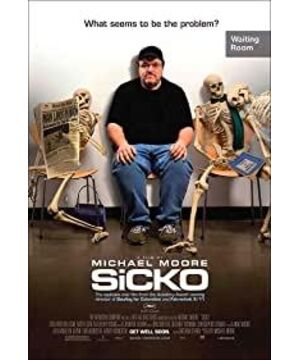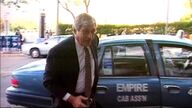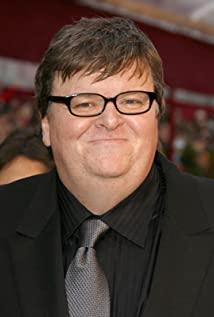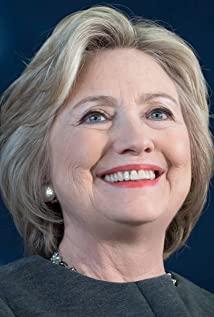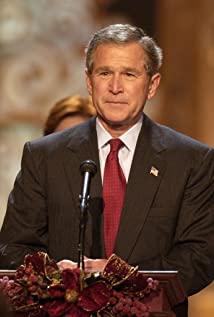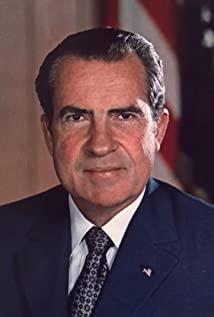"Nervous Man": A Desperate Fat American By / Vulcan Ji
Too much to say; but at the same time, too much to say. It wasn't a good feeling, like a longing to breathe; however, the throat was so tightly choked that it was impossible to move. Perhaps, not all people like the truth so much; because not all truth is happy. Some are sad; some are even hopeless. But no matter what, we always hope that what we hear will be the most sincere voice; the truth may be all the facts that cannot be changed, but only by knowing the truth can we find a direction that may be called the right direction. - Vulcan Ji. Inscription.
This movie is clearly another mainstream movie about people's livelihood outside the mainstream American entertainment, and Michael Moore (Michael Moore) said that his American dream has been broken; however, who is not. A national who claims to be from the richest country in the world is running around with questions full of questions. There were so many questions and so many doubts that Moore looked a little pudgy and had trouble moving. Moore's "Sicko", who has created "Fahrenheit 911" and has also cared about such big propositions as the privatization of guns in the United States and the Iraq War, has the idea of medical insurance. It is estimated that not all Everyone loves it. Throughout the film and television works in the United States, most of them are filled with a kind of complacent great-powerism, and they sing and dance everywhere. All freedom, democracy, and what Hollywood preaches is an ideal state known as the "American Dream." The American people love the United States, which is obviously just as natural as the Chinese people love China; and as the world's leading Hollywood entertainment, it seems no exaggeration to sing and dance for their own country. Moore always likes to pour some cold water on us when we're mostly dizzy with Hollywood-style bombardment. Friends of Friends will remember the time when Joey Tribbiani, played by Matt LeBlanc, lost his health insurance because he worked too short a time. the hard times spent. Joey, who was doing dumbbell exercises, suddenly suffered a hernia and fell to the ground, then passed out, and couldn't get up after waking up; however, he refused to go to the hospital to see a doctor, because there was no medical insurance for thousands of dollars for the surgery. is beyond his means. Chandler said he wanted to lend him money for the operation, but he said he didn't want to owe him a lifetime of money for the operation. It's a bit of an exaggeration, but it's conceivable that when you don't have medical insurance, getting sick is a terrible and expensive thing. Joey got his health insurance again after working a couple of days with the pain, and he celebrated by donning a helmet and having Phoebe hit him in the head with a baseball bat. In this way, the US health care system may be evident.
This seems to us somewhat inconceivable, even absurd; the Confucian education that has been educated for thousands of years by "parents who take care of the body and skin" makes us cherish our body so much, like this kind of "stick hitting the head with the helmet" and so on. His actions could be classified as disrespectful. But it happened in America, it happened in Friends, it happened to Joey and Phoebe; it doesn't seem strange and understandable. Judging from Joey's completely different attitudes in the medical insurance incident, for ordinary people in the United States, medical insurance is definitely a big deal. As long as we work long enough, the compensation we get will go into our bank account, and then the bank account will be transferred to the insurance company, so that if we encounter an accident such as unemployment or illness, the insurance company will pay for it. We process part of the bill; if we apply for an insurance claim in due time and it is verified and approved by the insurance company.
In a way, such a health care system is a perfect system; as the footage in this film shows us, and as US President Richard Milhous Nixon Nixon desires: that all Americans have access to the best treatment in the world, when they need it, rich or poor; health insurance guarantees a robust implementation of all of this. Imagine a scenario where this system is implemented: first we have medical insurance, then we have coverage; then one day when we are sick, we can go to a hospital to see a doctor, take medicine or even have an operation, and we Then you don't have to worry about future bills such as medical treatment, the insurance company will help us solve these problems. It looks a bit advertised, as all the insurance companies advertised in those TV commercials cut from the movie. What Moore has done is, in this so-called perfection, reveal the truth that those TV commercials will never tell us. No matter how perfect a system is, there will always be dark corners; and no matter how perfect things are, there will always be unknown flaws. The power of documentary lies in everything that is displayed in front of our eyes incessantly; once, it brought us such a shocking despair. And because of despair; we have the courage to struggle. Then, will we see the so-called hope, and the light. I'm thinking, maybe in the end of my life, I won't be able to see the dazzling and dazzling light that once bloomed over post-World War II England in 1948.
Moore's desperation isn't entirely unreasonable; I'm clearly much more desperate than he is after watching the film he's made. The root of despair is difference; the difference between people may not be enough to make people feel hopeless, but the difference between being a national and other nationals is enough to create an impulse to hit the wall. Americans have always been known for their pride. For example, the toy doll of the American soldier is still the most popular toy doll image in the United States. Against such a cultural background of a great power, if Moore's film is called heavy The pound bomb is nothing more than that. Following Moore's lens all the way from the United States, through Mexico, Canada, the United Kingdom, France, and then through Cuba to return to the United States, we can see all the medical insurance systems that are called developed countries, and we can also see such as Cuba. healthcare system in developing countries. My desperation is not a complaint; I know that the pace of development in all emerging developing countries must be steady and steady. Moore, on the other hand, may be his desperation when he says that "the United States remains the only country in the developed world without universal free health care." The film ends with Moore walking alone to the White House. I don't know if he can actually walk into the White House and say all this he wants to without being taken out of the White House as a "neuropath". Recognizing all this, acknowledging it all and facing it squarely, may be the truth that Moore wants to warn us to know.
The prisoners of war who made 9/11 could stay in prison and enjoy the most selected medical equipment and the best medical care in the world for free, and Moore sailed a boat with a group of people who were called heroes in 9/11, also in the In the rubble of 9/11, people who were sick and had nowhere to turn to run outside the prisons of war prisoners demanding the same medical treatment as the prisoners of war, not better, just the same treatment, of course they were turned away and sirens blared drive away. Such a contrast is the last thing Moore does not want to see, and perhaps all the American people do not want to see. After the halo of heroism faded, and in their own country not getting the same treatment as prisoners of war, Moore aimed his arrow at Bush Jr.'s helpless face. As politicians, the treatment of prisoners of war represents the face of the United States in the world, so they deserve better treatment. It is an irony in itself that these American heroes end up in what they call the most wicked country, Cuba, where they receive the respect, medical care, and sidewalk welcome they never get in their own country. matter. I don't have the slightest anti-American sentiment, but after seeing the heroes who have been advocated in the American media being placed in this way, I feel a little bit that the legendary Yankees seem to be too unkind. Not just with their enemies, but with their own heroes as well.
There are rumors that Moore may face the possibility of imprisonment because of the film. However, the United States is also a country that advocates so-called freedom of speech; if this happens, perhaps, Moore's next film can be a hedge against so-called freedom of speech in the United States. However, after all, this is a movie that gives American politicians a headache. In those shots where politicians are clearly priced, Moore's chubby figure suddenly appears so tall and intriguing. Medicare feeds the pockets of the US insurers; other developed countries avoid it with universal free health care plans. As those French people with strong anti-American awareness in the film said, the French government is afraid of the people, and the American people are afraid of the government. Why there is such a plan is because of the power of democracy. When American girls go to Mexico to get free medical treatment, when 9/11 heroes get free medical treatment in Cuba, the most evil country in the United States, when French housewives enjoy half a year of paid maternity leave And half a year of unpaid maternity leave and half a year after the birth of the child, a nanny hired by the government to complete the housework for them, when people in all developed countries can go into any hospital to enjoy free medical treatment, and go to all pharmacies to get free medicines time; Americans, what are they doing. People without health insurance are being dumped on the streets, and people with health insurance worry about whether insurance companies will deny their benefits. What Moore is doing is showing an America we've never seen, an America we've never known.
A desperate American fat man wandering the streets of London, he walked into all the hospitals and asked them how much it cost to see a doctor, and then looked for the truth with an "unbelievable" face. Moore stopped when he finally found a window called "Cashier" in Nova's hospital, only to find it wasn't the place he was looking for. Because instead of not charging, this place pays patients to use transportation in a way that works for them; what they worry about is how they can get home safely after they have been treated. It may not be unreasonable for Canadians to idolize Tommy Douglas, who introduced the Canada Health Act. At least from Michael Moore's point of view, he hopes that such an idol will appear in the United States instead of the popular idol from "American Idol".
2007-12-15; Dinghai year Renzi month Guiwei day.
P.S.: Movie information extension link. ■Title: "Sicko" ■Translation: "Nervous Patient", "Medical Insider" ■Director: Michael Moore ■Starring: Michael Moore, Reggie Cervantes ), John Graham ■ Genre: Documentary ■ Duration: 120 minutes ■ Country: United States ■ Language: English ■ Release: 01 Distribuzione ■ Released: June 22, 2007 (United States)
View more about Sicko reviews


